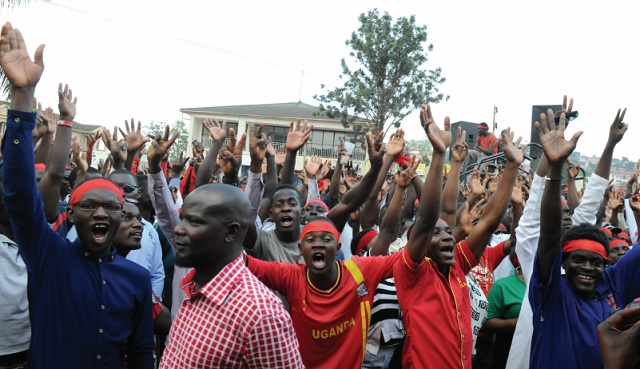
The foolishness & falsehoods
Kampala, Uganda | FLAVIA NASSAKA | One of the enduring sights from the Dec.18 session of parliament to debate amending Article 102 (b) will be that of Allan Ssewanyana, placing his buttocks on the table of parliament and stretching his hand across to grab a report that the Chairman of Parliament’s Legal and Parliamentary Affairs Committee, West Budama South legislator Jacob Oboth Oboth, was presenting. Why did Sewanyana do that? We will never know.
However, it was a clear that Sewanyana’s grabbing of that sheet of paper could not change the course of what was about to take place. His antics were mere publicity grabbers; that resulted in his expulsion from the chamber together with five of his colleagues. In effect, opposition to the tabled Bill was reduced by 6 crucial votes. It was a clear case of someone sacrificing long-term gain for short-term reward.
And, because the tendency of the brain to sacrifice long-term gain for short-term reward is universally human, Sewanyana was not alone in succumbing.
Take the case of the Speaker of Parliament, Rebecca Kadaga. Parliamentary debates usually happen in the afternoon of Tuesday, Wednesday and Thursday. But this time Kadaga convened the seating as early as 9am on a Monday.
Secondly, the anticipated Constitutional Amendment Bill 2017 was due for second reading, and later a third reading, before debate of it could commence. Instead, Kadaga guided the House into knocking down every safeguard to informed and cautious debates of an important topic.
Constitutional lawyer Yusuf Nsibambi, who like many Ugandans says he tensely watched the proceedings in parliament on television, says the Speaker’s body language spoke volumes.
“The Speaker is in a hurry to pass it,” he says, “And she wasn’t in control.”
Nsibambi says President Yoweri Museveni is orchestrating every move in the constitution amendment process by taking advantage of legislators’ incompetence.
“What happened exposed the nature of parliament we have,” he said of the events that took place on December 18 as the bill was presented for second reading, “MPs swore to uphold and protect the constitution but they have no competence to understand what they are supposed to protect”.
For Nsibambi, who now proposes that parliament should be divided into two chambers; the upper one composed of competent members to discuss sensitive matters as constitutional amendments and the one of the majority to discuss general issues, said those supporting the amendment should know that “the constitution is now left with no protection” and that “it’s a big problem”.
For him, the constitution had three safe guards; the smooth transition of power which has already been violated, the power of voters to recall MPs from parliament incase voters lose confidence in them, which he says ended with the Movement System, and now the final one; the 75 year age-limit on the presidency which is now going.
When discussing the motivations of the legislators, Makerere University-based political science professor Sabiti Makara is blunter.
The MPs are trading important national issues for cash, he says, echoing information circulating that the MPs in support of the amendments have already pocketed up to Shs300million each.
Makara says “most legislators are not exposed” and cites it as “the reason why they tend to be brokering deals all the time”.
When President Museveni met members of the Legal and Parliamentary Affairs Committee headed by West Budama South legislator Jacob Oboth Oboth on Dec. 05, and agreed to support extending the term of MPs from five years to seven, it was seen as adding more bait to the already hooked MPs.
Oboth-Oboth’s committee was on its last leg of gathering views on the amendment from key stakeholders. To the MPs, it is just another deal to earn more cash and more time to strategize on how to win back their voters for more terms.
While many politicians across the political divide stand to benefit from this proposal of extension of the term of office, pundits say all this is meant to benefit Museveni as the biggest beneficiary.
That’s why even before Sept.27, when Igara West’s Raphael Magyezi was officially granted leave of parliament to draft the bill, those who held demonstrations against amending the constitution were arrested yet those who supported it were given security and never molested.
 The Independent Uganda: You get the Truth we Pay the Price
The Independent Uganda: You get the Truth we Pay the Price





